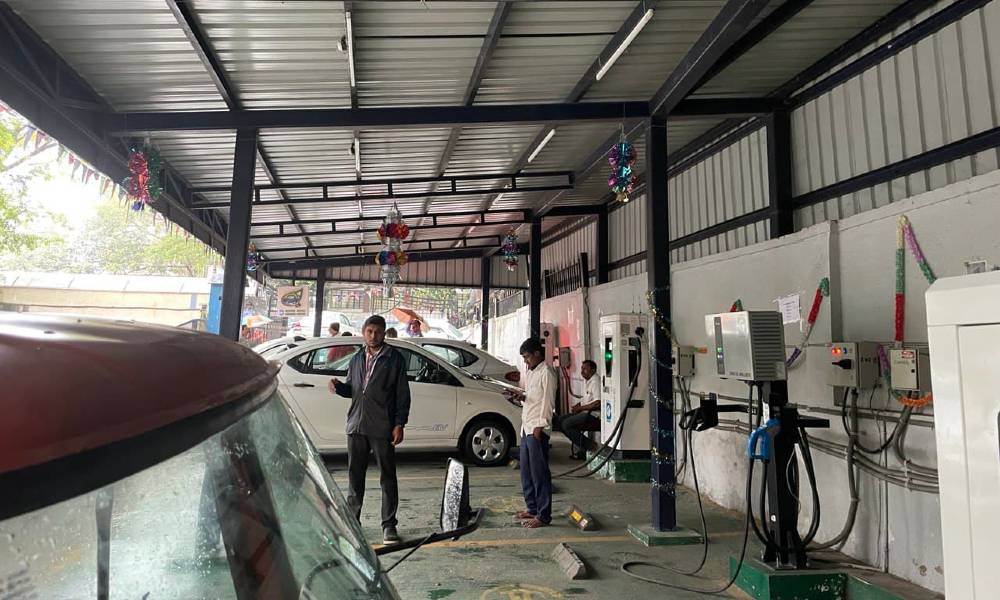The rollout of 140 stations will be delayed by two months which were supposed to be installed by January.
BESCOM (Bangalore Electricity Supply company Limited is planning to set up Electric Vehicle (EV) charging stations at toll plazas from Bangalore to Belgaum in the coming year. BESCOM is already in talks with the National Highway Authority of India (NHAI), and has sent a proposal.
Vijay Rao, Assistant General Manager of BESCOM who is part of the project said, “It’s a pilot project and we have already sent the proposal to NHAI. Once it is approved, we will start working on it.” He added BESCOM chose toll gates because of the availability of the parking space on the Left Hand Side (LHS) and RHS Right Hand Side (RHS) of the highways. “Also, power supply won’t be an issue since they already have established connections. We already have the manpower as well and it is a secure area. So we wouldn’t have to worry about all this because while installing charging stations in the city, these aspects do cause hurdles.”

Meanwhile, as it is working on this new project, its previous project of installing 140 charging stations by January 2023 is delayed by two months. “50 percent would be rolled out by January and the rest of them can be expected by the end of March. There are places where a lot of work is still needed and we are facing issues with acquiring the land,” said a senior Bengaluru Metropolitan Transport Corporation (BMTC) official.
Mohammad Anif who drove 11 Kms to charge his two-year-old electric cargo three-wheeler said that only BESCOM charging station could charge three vehicles at a time. “Everywhere I go, there’s already a long queue and sometimes I have to wait two to three hours for my turn.” While charging his vehicle at one of the stations in the city, he said that the infrastructure was the problem. “There are companies coming up with new Electric Vehicles, but our city lacks the infrastructure to accommodate them. The average distance between two stations is 8 to 10 kms. Sometimes they are not functioning properly, which exacerbates the problem.”
Currently, the city has 284 charging stations under the Public Private Partnership (PPP) model but the official website reflects 136 as some of them are not operational yet, said Vijay.
Prof. Ashish Verma, professor of civil engineering at the Indian Institute of Science (IISc) and also a Convenor of the IISc Sustainable Transportation Lab said that range anxiety was a major hurdle in the larger and faster adoption of Electric vehicles. “When you have less than the optimum number of charging points in the city, it contributes to range anxiety. The buyer needs to be sure that he will have options to charge his vehicle on the go, in case the battery is discharged. ”
Radhe Sham who shifted to an electric vehicle because of its low maintenance said that “They are easy to maintain as they don’t need any oil change. Also, they are easy on the pocket. Cost-effectiveness was the reason that I switched.” Nabira Sol, a resident from Andhra Pradesh who travels to Bangalore every 10 days for business started driving an electric car recently. He said, “The maintenance cost of the vehicle is very low. Fuel rates have gone up, so this is a more affordable option.”
Prof. Ashish said that the shortage of EV charging stations in the city would result in slower adoption of EVs by consumers.




